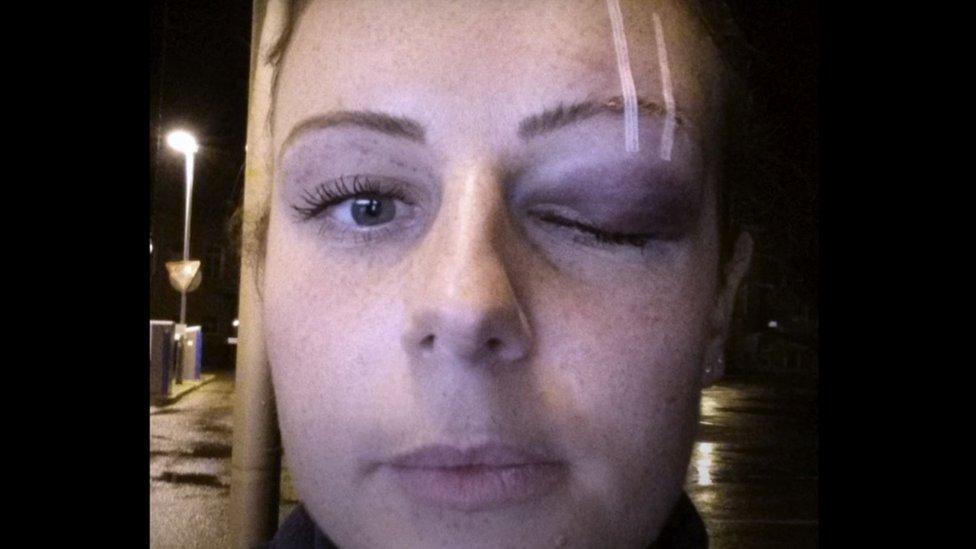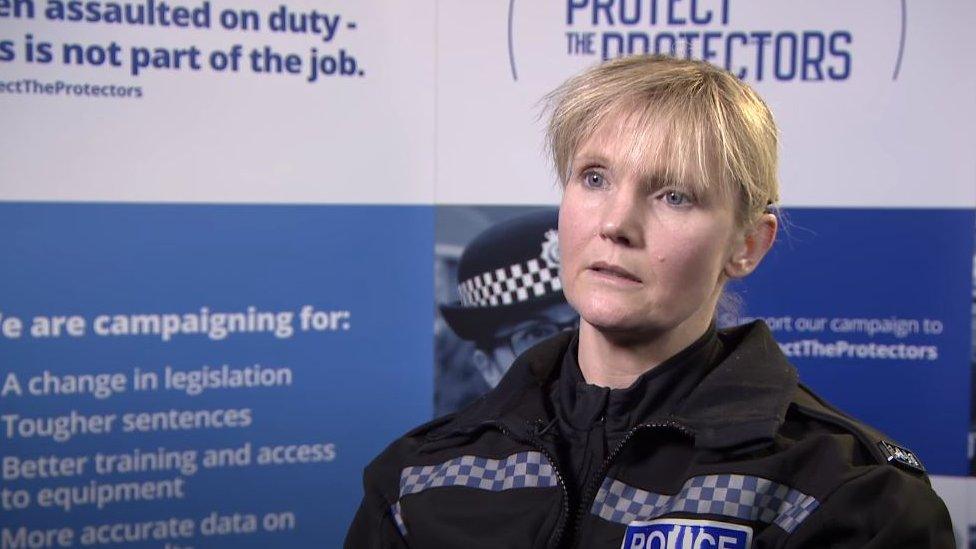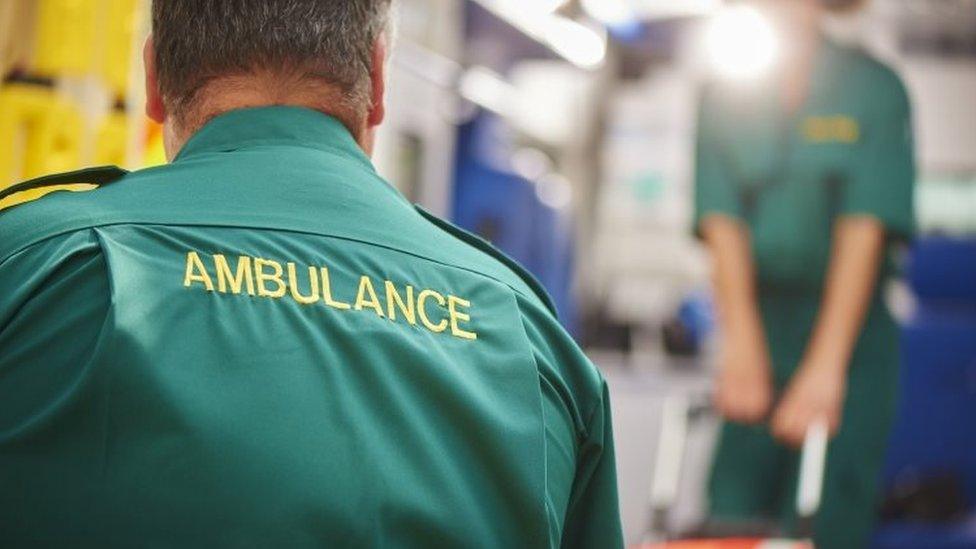Sentences to double for attacks on emergency workers
- Published

PC Heather Caruna was headbutted during an arrest in Surrey
Maximum sentences for those convicted of assaulting emergency workers in England and Wales will be doubled.
New sentencing laws will increase the maximum penalty for violent attacks to two years as part of justice reforms.
Home Secretary Priti Patel said the change "sends a clear and simple message" to offenders.
It comes amid a campaign - by the wife of a PC who died during a pursuit - for killers of emergency workers to face mandatory life sentences.
Lissie Harper, the widow of PC Andrew Harper who suffered catastrophic injuries while chasing a getaway car in Berkshire last year, hopes a new Harper's Law will "help fix" a "broken" justice system.
Mrs Harper has said a meeting with Ms Patel to discuss her campaign this month was "positive".
The changes to sentencing will apply to attacks on police, prison and custody officers, ambulance staff, NHS workers, rescuers and firefighters.
'Bleeding profusely'
PC Laura Gargett was working a Christmas Day nightshift in West Yorkshire when she was assaulted by a violent suspect.
As she tried to detain the suspect with a colleague, she remembers a foot "came at high velocity straight into my face with such force I went backwards with quite some speed and quite some distance".
"I tried to get up but I couldn't physically move. The pain and the noise, and then the warmth over my face I knew something was bleeding quite profusely," she said.

PC Laura Gargett said her children were left upset after her assault on Christmas Day
"I remember tasting blood at the back of my throat and thinking 'my nose has gone, my face has gone'."
"My kids were really upset when they saw their mum on Boxing Day morning with two black eyes and a very, very swollen nose. They were very, very tearful," she added.
"It does knock your confidence," she said. "You think 'am I going to get my head kicked in today?'"
PC Heather Caruna said she still gets nervous after being headbutted during an arrest in Surrey.
The attack left her feeling like she had been "hit with a chair".
"My eye closed up and I couldn't see out of it for about five days... it resulted in me not wanting to go out of the house."
Matt Dunn, a consultant paramedic at North West Ambulance Service, said 241 physical assaults against its staff had been recorded so far in 2020.
"We're there when people need us most and we should be able to do that without fear of being attacked," he said.
'Lasting impact'
The Police Federation of England and Wales said it welcomed a "meaningful deterrent" and Unison, which represents front-line medics, said attacks "have a lasting impact".
The proposed doubling of maximum jail terms, which form part of a government White Paper on sentencing reforms, would also cover convictions for coughing and spitting, the home secretary suggested.
"This new law sends a clear and simple message to these vile thugs - you will not get away with such appalling behaviour and you will be subject to the force of the law," Ms Patel added.
Justice Secretary Robert Buckland warned offenders "your disgraceful behaviour is unacceptable and you will feel the full force of the law".
Changes to maximum jail terms for assaults on emergency workers were mooted in July when ministers launched a consultation.
They come two years after maximum terms were increased to 12 months in England and Wales.
- Published13 July 2020

- Published18 August 2020

- Published26 August 2020
